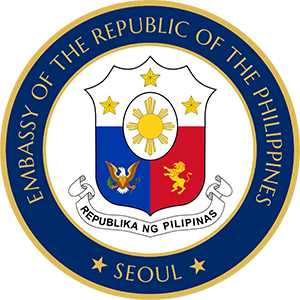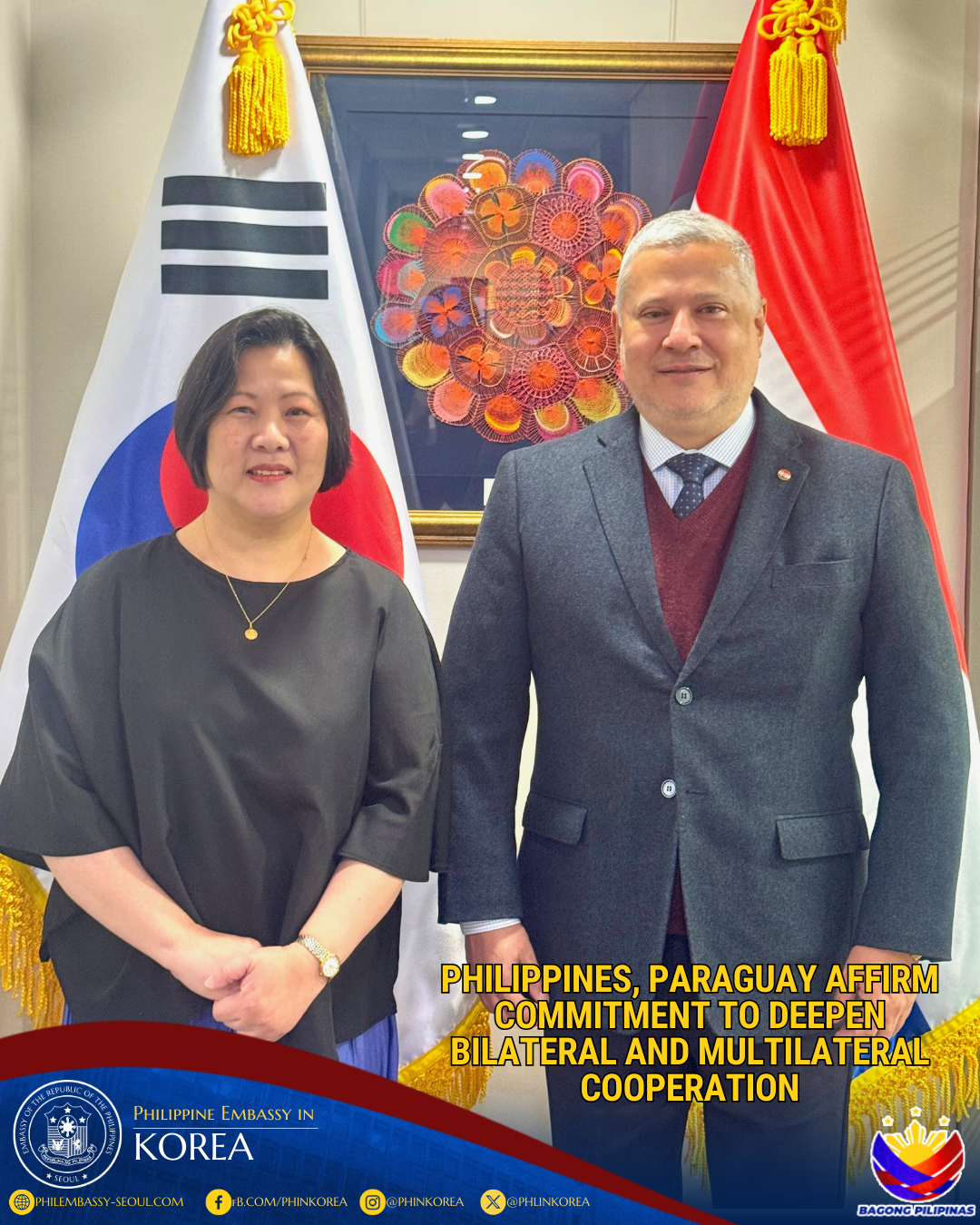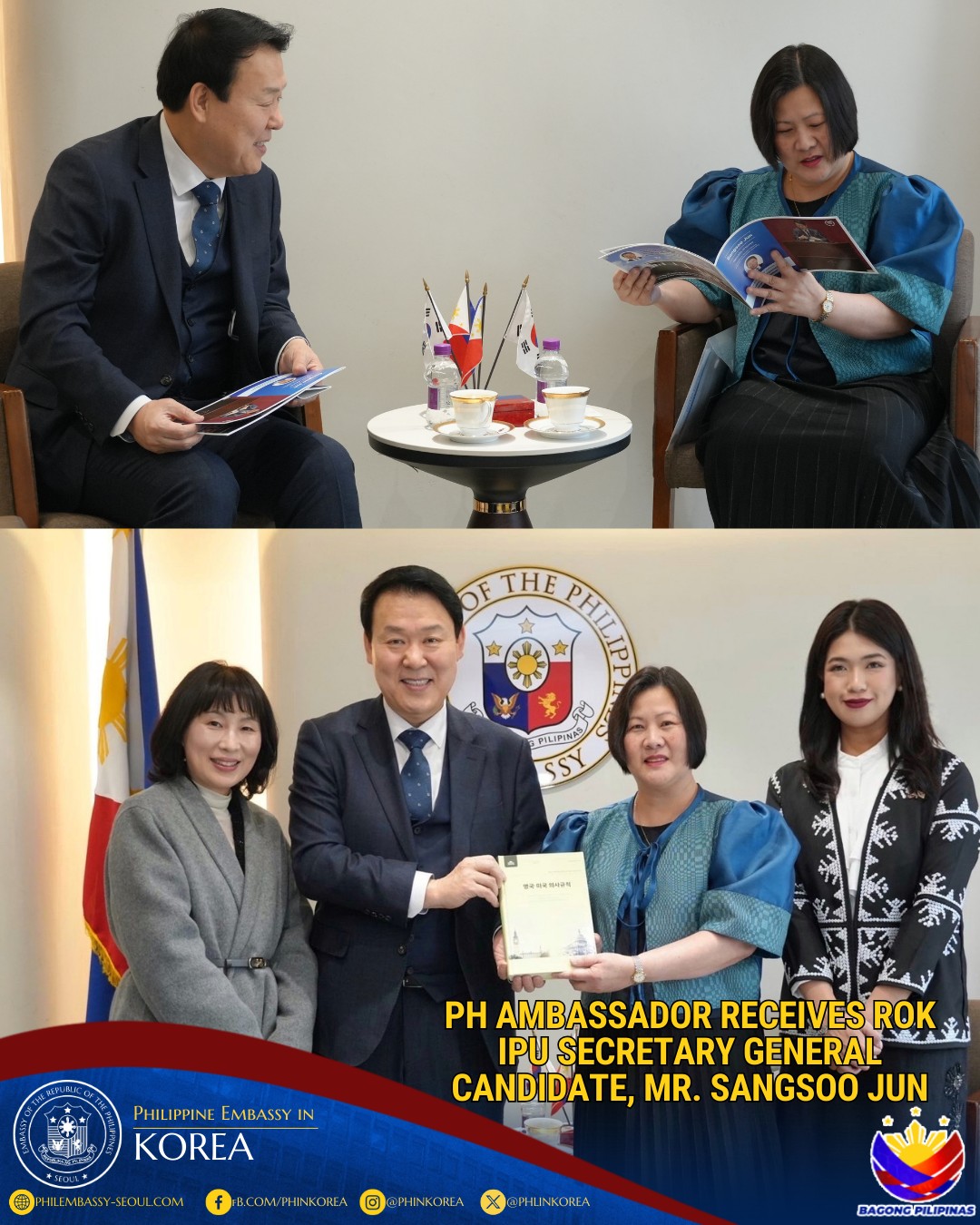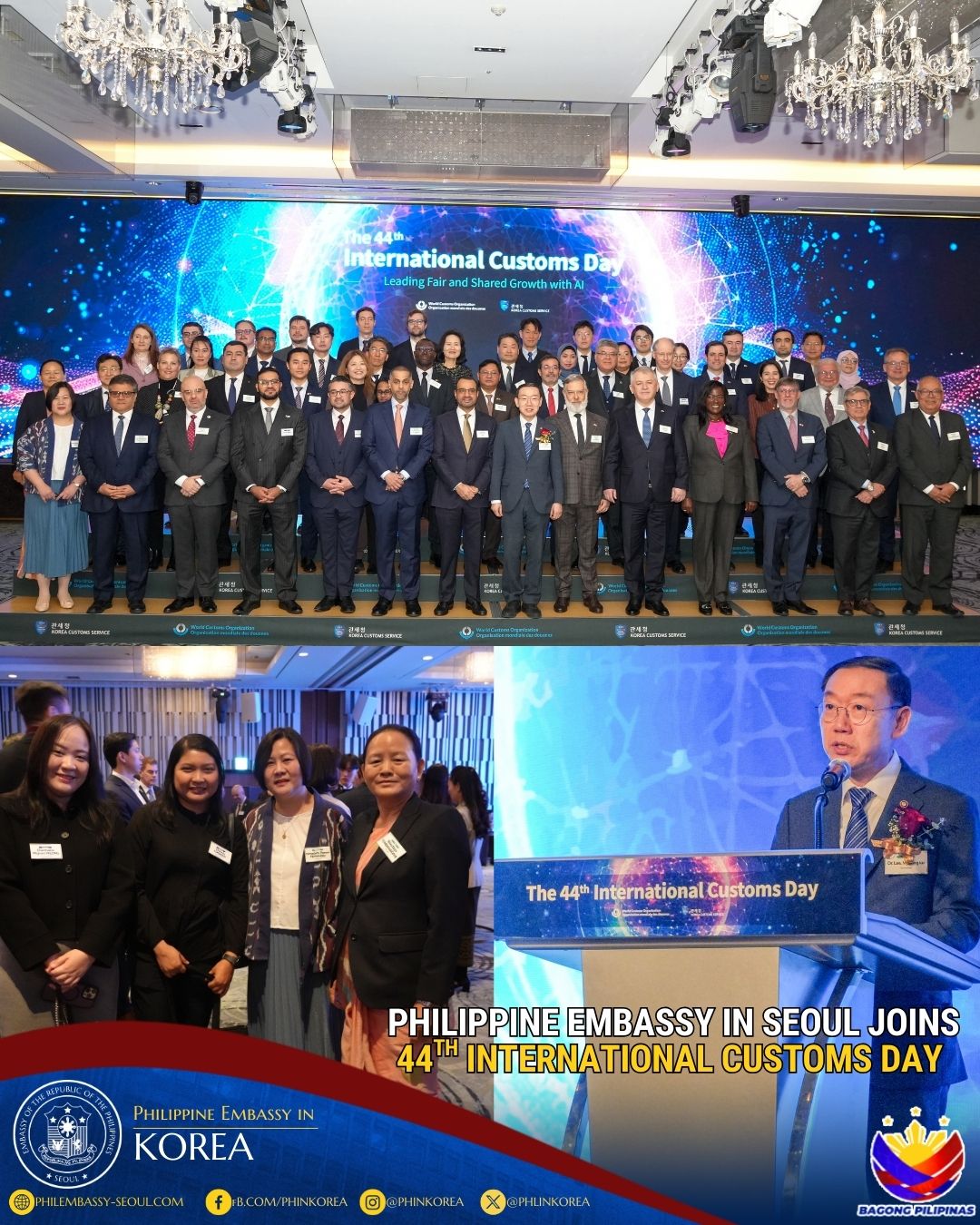Philippine Embassy in Seoul Re-Unveils Forgotten Memorials for Filipino Veterans of the Korean War
10 October 2008 – Two weeks after a trip to Yultong, a small village in South Korea only two miles south of the Demilitarized Zone, Philippine Ambassador to Seoul Luis T. Cruz remarks about two obscure memorials to students of Sangmyung University in central Seoul.
“In the course of our research for a documentary on the Philippine participation in the Korean War,†revealed Amb. Cruz, “We found out that there were two memorials erected for Filipino soldiers by their comrades but which have been largely forgotten by the public.†“We wish to promote awareness about those two memorials,†he added. Located in Yeoncheon County about an hour and a half from Seoul, the memorials he was referring to pay tribute to the heroism of the 10th Battalion Combat Team of the Philippine Expeditionary Forces to Korea (PEFTOK), which suffered heavy losses while defending the lines from the Chinese offensive during the Battle of Yultong in April 1951. Now covered by vegetation and chipped in several places, one of the memorials partly reads, “This marker is dedicated to the heroes of Yultong by their comrades in arms of the 20th Battalion Combat Team.†There is no indication when the small marker, which is about one meter in height, was put up. A few meters away, also on top of a small hill, is a larger memorial erected in 1966 with the help of Kap-chong Chi, a war correspondent and current chairman of the UN-Korean War Allies Association. While visiting the Philippines in 1965, Chi heard from Filipino veterans about a battle in Yultong where soldiers displayed great valor and strength. Back in South Korea, Chi tried to locate the site of the battle using military history maps. The village’s meaning—literally, “Chestnut Village‗gave a clue to its location. In Yeoncheon, he also found the site of a photo taken of the soldiers as they were passing by a water tank. Chi was surprised to find the smaller marker already in place in Yultong. The UN Korean War Allies Association then constructed a larger, 10-foot high monument of black marble (Chi himself made the design and funded the project) and held a formal inauguration ceremony on April 21, 1966 on the 15th Anniversary of the Battle of Yultong. Former Philippine Ambassador Pedro Ramirez, PEFTOK Association President Gamariel Marrikan, and high-ranking officials from the Korean Government and the UN Command attended the unveiling of the monument, the first to be built by the War Allies Association to commemorate significant battle victories. The inscription on the second monument proudly proclaims, “Dedicated to PEFTOK, the heroic Filipino soldiers who on this soil fought for the defence of freedom and world peace.†In the subsequent years, officials regularly visited the memorials, including former President Fidel V. Ramos (then a commander of the 3rd Infantry Brigade of the Philippine Army) in 1970 and Ambassador Benjamin Tirona in 1971 during the 20th Anniversary of the battle. Then, for almost four decades after, the memorials were slowly forgotten. Chi believes that the strict security measures in Yultong and the construction of the towering Philippine Monument in Goyang City in 1974 gradually eclipsed the memorials. Because Yultong is only two miles from the border, civilian movements in the area used to be restricted. Identity checks were in place. People were therefore not as free to move around and visit the markers. Meanwhile, the South Korean Ministry of National Defense erected an enormous 17-meter pillar, sitting atop a 4.5-meter high base, in Goyang City on October 2, 1974 as part of the national government’s initiative of dedicating monuments to each of the 16 countries that helped in the Korean War. Distance-wise, the Philippine Monument is only 40 minutes away from downtown Seoul. This massive monument became the popular emblem of the Philippine participation, overshadowing the two earlier memorials. In 2005, former Defense and Armed Forces Attaché Jonas Sumagaysay started an annual wreath-laying ceremony to commemorate the arrival of the PEFTOK in Busan on September 19, 1950. For the past years, surviving Filipino veterans and family members have been taking part in the ceremony, which fortunately coincides with the Korea Revisit Program of the Korea Veterans Association. Led by DND Undersecretary Ernesto Carolina and PEFTOK President Victorino Azada, four veterans and around 20 family members took part in this year’s hosted tours from September 27 to October 2. The Korea Veterans Association also awarded the Ambassador of Peace medal to Col. Rodrigo Jopson and, posthumously, to Lt. Edmund Nacion and Lt. Gen. Ramon Aguirre during an appreciation dinner on September 30. It was also on September 28 of this year that all three monuments honoring Filipino soldiers were finally visited, reuniting teary-eyed veterans and their families with concrete reminders of the bravery and gallantry of their comrades and relatives. More than 7,000 Filipino soldiers in five battalions served under the auspices of the United Nations during the Korean War, 116 of whom gave up their lives. To this day, in the absence of a peace treaty formally ending the war, the Philippines maintains a presence in South Korea with three honor guards detailed in the UN Command. Said Amb. Cruz during the last wreath-laying ceremony in Goyang City on September 30: “We are obliged, with all our resources, to make sure that the stories of our soldiers do not get lost in the annals of history. It is our duty to inform the younger generation of their stories, for much learning can be had from their experiences.†And as he recently explained about the two memorials to 80 young Koreans in Sangmyung University—students who have no memory or experience of the war—the Embassy spearheads the initiative to raise awareness about the valuable role that Filipinos played in ensuring freedom and democracy in South Korea.


 January 28, 2026
January 28, 2026
 January 26, 2026
January 26, 2026
 January 29, 2026
January 29, 2026
